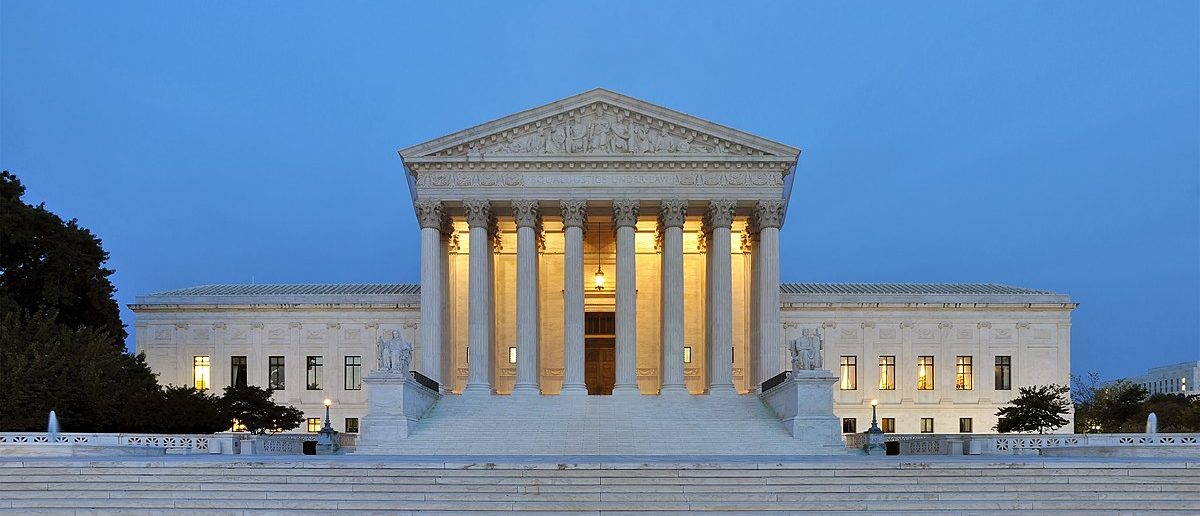International
Mass Protests Erupt In Venezuela As Voters Refuse To Accept Incumbent Dictator’s Dubious Election Victory
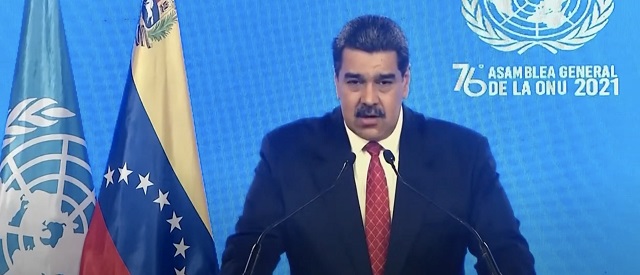
 From the Daily Caller News Foundation
From the Daily Caller News Foundation
By JAKE SMITH
A crowd of protesters attempted to reach the presidential palace but were stopped by law enforcement, according to the Times. Another crowd in Cumana, located hundreds of miles from Caracas, made its way toward Venezuela’s election headquarters but was stonewalled by the National Guard.
Mass protests broke out across Venezuela on Monday and Tuesday in reaction to incumbent socialist-dictator Nicolas Maduro’s questionable claim to victory in the country’s presidential election on Sunday, according to multiple reports.
Maduro declared himself the winner of the presidential election despite concerns that votes had been tampered with and the election set in his favor. With the opposing party refusing to concede defeat and the international community condemning the election as rigged, protesters have taken to the streets of Venezuela to decry Maduro as his regime works to suppress resistance, according to several accounts.
“I’ll fight for my country’s democracy. They stole the election from us,” one masked protester told Reuters.
“We are tired of this government, we want a change. We want to be free in Venezuela. We want our families to return here,” another protester told Reuters.
Protesters took to Caracas, the capital of Venezuela, reaching government installations that had not seen such demonstrations in decades, according to The New York Times and Reuters. Some protesters in Caracas and other cities ripped apart posters of Maduro while others lit fires in the streets and threw petrol bombs at law enforcement, which in turn fired tear gas to disperse crowds.
A crowd of protesters attempted to reach the presidential palace but were stopped by law enforcement, according to the Times. Another crowd in Cumana, located hundreds of miles from Caracas, made its way toward Venezuela’s election headquarters but was stonewalled by the National Guard.
Flights coming into Venezuela from Panama and the Dominican Republic will be suspended starting on Wednesday amid the spike in protests, according to CNN. Maduro’s government decried the protesters as insurgents.
Maduro’s government has already excommunicated several diplomatic missions from Latin American countries that have decried the elections as rigged, according to the Times. The government also announced investigations into members of the opposition party on accusations of election fraud. The U.S. and several members of the West have declared Maduro’s claim to victory as baseless and an attempt to stay in power while undermining democracy, similar to their reactions to his questionable 2018 reelection.
The government and the electoral council have refused to release a detailed tally of the voting results, even as it declared victory for Maduro — further raising concerns that the election had been stolen, according to the Times.
“Not even (Maduro) believes the electoral scam he is celebrating,” Argentinian President Javier Milei said on Tuesday of Venezuela’s elections, according to Reuters.
Featured image credit: Maduro screenshot/PBS NewsHour
Business
Ottawa Slams Eby Government Over Chinese Shipyard Deal, Citing Security and Sovereignty Risks
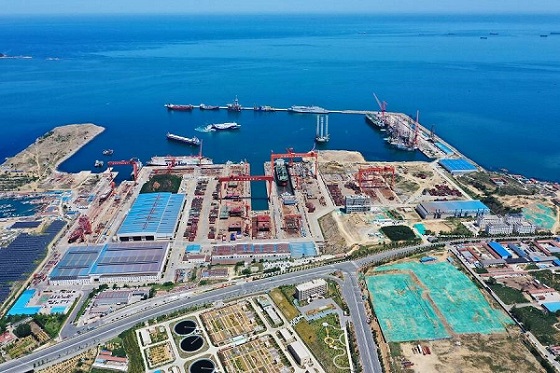
 Sam Cooper
Sam Cooper
Western security analysts have warned that China’s commercial shipyards routinely serve dual-use purposes, supporting both civilian contracts and the expansion of the People’s Liberation Army Navy. A 2024 report by the Center for Strategic and International Studies warned that foreign customers contracting with Chinese state-owned shipbuilders may be inadvertently “subsidizing the growth of China’s naval power.”
Stung by a political firestorm over his provincial government’s decision to hand a massive shipbuilding contract to Chinese suppliers that critics say could bolster Xi Jinping’s military capabilities and undermine Canadian national security, B.C. Premier David Eby late Friday night reluctantly released a searing letter from federal Transport Minister Chrystia Freeland.
The letter, dated June 16 and addressed to B.C. Transportation Minister Mike Farnworth, expresses Freeland’s “consternation and disappointment” over BC Ferries’ decision to select China Merchants Industry Weihai—a subsidiary of a state-owned Chinese conglomerate closely tied to Beijing’s military-civil fusion strategy and Belt and Road Initiative—to build four new major vessels.
“I am dismayed that BC Ferries would select a Chinese state-owned shipyard to build new ferries in the current geopolitical context,” Freeland wrote. She demanded that Farnworth “verify and confirm with utmost certainty that no federal funding will be diverted to support the acquisition of these new ferries.”
Freeland emphasized that the Government of Canada has provided “long-standing financial support” to British Columbia’s ferry system, including “approximately $37.8 million” annually under a 1977 agreement, $308 million to cover pandemic-related operating losses, and “a $75-million loan to BC Ferries to help purchase four net-zero emission ferries.”
“Given the value of the contract and the level of taxpayer funding that has been provided to support BC Ferries’ operations,” Freeland wrote, “I am surprised that BC Ferries does not appear to have been mandated to require an appropriate level of Canadian content in the procurement or the involvement of the Canadian marine industry.”
The letter, which had been withheld by Eby’s government for nearly a week, was quietly released to the public just before midnight Eastern Time Friday—only after repeated demands in Parliament by Conservative MP Dan Albas, who posted on social media: “People deserve that transparency.”
The political backlash mounted swiftly following Eby’s disclosure of the deal with China. BC Conservative leader John Rustad accused Eby and BC Ferries of failing to account for the broader strategic risks of contracting with a Chinese state-owned entity during a period of rising global tensions.
“There’s lots of rhetoric going back and forth between the United States and China, friction with Taiwan,” Rustad told Postmedia. “Who knows what may happen? Hopefully nothing by 2029 to 2031, which is when these ships are going to start to be constructed and delivered.”
It’s not a far-fetched concern. During the COVID-19 pandemic, Prime Minister Justin Trudeau’s government entered into a vaccine partnership with CanSino Biologics—a company with links to China’s People’s Liberation Army—only for Beijing to block shipment of the vaccine, abruptly collapsing the deal.
In her June 16 letter, Freeland warned the B.C. government that “ongoing concerns regarding threats to security, including cybersecurity, from China” required urgent attention. She asked for clear commitments that BC Ferries had conducted “a robust risk assessment” and demanded to be informed of the steps being taken to “reduce the risks of outside influence or control from cybersecurity vulnerabilities,” and to “mitigate the risks that vessel maintenance and spare parts may pose.”
Freeland further linked the deal to Beijing’s retaliatory economic measures, writing, “China has imposed unjustified tariffs on Canada, including 100% tariffs on canola oil, meal, and pea imports, and a 25% duty on Canadian aquatic products and pork. These tariffs have affected about 36% of Canadian agriculture businesses and are directly impacting the livelihood of Canadians.”
China Merchants Industry Weihai is a subsidiary of China Merchants Group, a massive state-owned enterprise that has played a central role in advancing Beijing’s Belt and Road Initiative since 2013. The conglomerate operates ports and shipyards across Asia, Europe, and Africa—including strategic holdings in Greece, Lithuania, Nigeria, and Djibouti—and is a central player in the Chinese Communist Party’s military-civil fusion strategy.
Western security analysts have warned that China’s commercial shipyards routinely serve dual-use purposes, supporting both civilian contracts and the expansion of the People’s Liberation Army Navy. A 2024 report by the Center for Strategic and International Studies warned that foreign customers contracting with Chinese state-owned shipbuilders may be inadvertently “subsidizing the growth of China’s naval power.”
Valued in the hundreds of millions, the contract will see the Chinese yard begin delivering the vessels between 2029 and 2031.
Rustad further told Postmedia that the province’s reliance on foreign state-controlled suppliers for strategic transportation infrastructure was “not just irresponsible, it’s a betrayal of Canadian workers and economic independence.”
The BC Federation of Labour has also raised concerns about the use of public money to finance offshore contracts that benefit authoritarian regimes, and Canadian maritime industry groups have renewed calls for a federal policy mandating domestic content in major shipbuilding procurements.
First established in 2016 under then-premier Christy Clark through a Memorandum of Understanding with China’s Guangdong province, the B.C.–Belt and Road Initiative pact laid the groundwork for collaboration on maritime trade, infrastructure, and shipbuilding with Chinese state-owned firms. Those ties expanded under Premier John Horgan, whose NDP government promoted deeper bilateral economic relations. The BC Ferries procurement—while legally made by an independent board—proceeded within a framework Premier Eby’s administration continues to support.
New research reported by The Bureau and published by the Washington-based Jamestown Foundation adds a sharp dimension to these concerns. The Foundation warns that criminal and political networks promoting Xi Jinping’s Belt and Road Initiative have been linked to Chinese transnational organized crime and covert Communist Party influence operations.
According to the report, a global syndicate known as Hongmen—also referred to as the Chinese Freemasons—has been deeply embedded in both criminal activity and Beijing’s “united front” operations, which support the CCP’s geopolitical aims including the annexation of Taiwan and BRI expansion.
“The organization’s sprawling structure includes affiliated offices across the globe from Hong Kong and Nairobi to Toronto and Madrid,” the report states. “The Chinese Communist Party has turned a blind eye as Hongmen ventures have expanded across One Belt One Road countries, in part because these organizations serve the purposes of united front work.”
The Jamestown Foundation’s findings echo longstanding concerns within Canada’s intelligence community regarding BRI-linked actors and opaque Chinese political networks operating in the country—especially in British Columbia, which remains the only jurisdiction in North America to have signed a formal Belt and Road agreement with Beijing.
Premier Eby has not apologized for the decision. He told reporters last week that the province would not interfere with BC Ferries’ independent board, which selected the Chinese yard based on cost and delivery timelines.
Whether mounting federal pressure and scrutiny from security experts will force a review remains an open question.
The Bureau is a reader-supported publication.
To receive new posts and support my work, consider becoming a free or paid subscriber.
Invite your friends and earn rewards
Health
Kennedy sets a higher bar for pharmaceuticals: This is What Modernization Should Look Like

 James Lyons-Weiler
James Lyons-Weiler
What People, Universities, and Pharma Do Not Yet Understand About the Kennedy Regulatory Bar: It Signals the End of the Regulatory States of America.
Science must outlive the PR cycle.
Modernization, as used today by industry lobbyists and public health officials, often amounts to a euphemism for deregulation: fewer checks, less transparency, and faster product pipelines with fewer questions asked. In contrast, Secretary Robert F. Kennedy Jr.’s approach to public health modernization is actual modernization—where rigorous science, true accountability, and unwavering public safety form the non-negotiable baseline.
The Kennedy Regulatory Bar isn’t a buzzword, and it’s certainly not a rhetorical device. It’s an operating philosophy grounded in scientific integrity and public duty. For those who understand regulatory policy only as an obstacle to commercial throughput, the Kennedy Bar feels like a threat. But to those who understand what science is—a falsifiable, ethical, and reproducible method of discovering truth—it represents nothing less than the restoration of sanity.
Defining the Kennedy Regulatory Bar
Secretary Kennedy has made his expectations perfectly clear. In his own words:
“Journalists like yourself assume that vaccines are encountering the same kind of rigorous safety testing as other drugs, including multiyear double-blind placebo testing. But the fact is that vaccines don’t.”
— Interview, STAT News, Aug. 21, 2017
“By freeing [vaccine makers] from liability for negligence, the 1986 statute removed any incentive for these companies to make safe products. If we want safe and effective vaccines, we need to end the liability shield.”
— Press Statement in Support of HR 5816, Sept. 26, 2024
“Mr. Kennedy believes vaccination should be voluntary and based on informed consent. For consent to be truly informed, the underlying science must be unbiased and free from corporate influence.”
— Campaign FAQ – Vaccines, Kennedy24.com, Aug. 15, 2023
“My mission over the next 18 months… will be to end the corrupt merger of state and corporate power.”
— Campaign Announcement Speech, Boston, Apr. 19, 2023
These principles, articulated repeatedly by Sec. Kennedy across media interviews, press events, and official communications, form the foundation of what we now call the Kennedy Bar.
The Kennedy Regulatory Bar: Five Core Standards
Rigorous Science: Long-term, double-blind, placebo-controlled trials are the gold standard and must not be circumvented. This is but one example. All of biomedical science should be upgraded to highest standards.
Restored Liability: No blanket immunity for manufacturers; liability is essential to safety. This flies in the face of concerted efforts by Pharma to expand liability exemptions (e.g., PREP Act).
Transparency: All trial data must be made publicly available in machine-readable form—no redactions, no gatekeeping. Collins failed to enforce this, and the failure was noted.
Independent Oversight: Regulatory decisions must be made by individuals and boards free of industry conflicts of interest. This includes, but is not limited to, vaccines, drugs, devices, and procedures.
Informed Consent: Patients must receive full, truthful information about benefits and risks—without coercion or censorship, and their rights to free, prior, informed consent are absolute.
These are not radical ideas. They are what science used to be before it was rebranded as a partner to commerce.
Why “Banning the mRNA Vaccines” Isn’t Necessary—If the Regulatory State Is Fixed
Some critics ask: Why not just ban mRNA vaccines outright?
The question misunderstands both the Kennedy Bar and Secretary Kennedy’s governing philosophy. Banning an entire class of biomedical products by executive fiat would mirror the very authoritarianism that corrupted the regulatory state in the first place. The goal is not to replace one top-down mandate with another—it is to restore bottom-up scientific validity, where products succeed or fail based on their actual merit, risk profile, and necessity.
Under the Kennedy Bar, no product—mRNA or otherwise—can bypass the full burden of proof:
- Did it go through long-term, double-blind, placebo-controlled trials?
- Were all adverse events transparently reported and analyzed?
- Was there independent oversight?
- Can the public access the raw data?
- Was informed consent meaningfully obtained?
If the answer is no—as it has been for many mRNA formulations—then the product simply fails to meet the regulatory standard. No ban is needed. Reality disqualifies it.
The Kennedy strategy is structural, not performative. It focuses on building a regulatory ecosystem that is incapable of licensing unsafe or ineffective products. This is a stronger safeguard than any prohibition. Rather than banning, Kennedy’s approach makes bad science impossible to pass off as medicine.
Once transparency is non-negotiable…
Once liability is restored…
Once regulatory capture is dismantled…
Then any product built on hype, shortcuts, or undisclosed risks—whether mRNA or otherwise—will collapse under the weight of real scrutiny.
That is not censorship. That is civilization defending itself by enforcing its own standards.
Integration Over Isolation
What sets Kennedy’s approach apart is not only the bar he sets for scientific integrity, but it is obvious this is how he is implementing it across government. As Secretary of Health and Human Services, he is already working to integrate the work of all HHS agencies—CDC, NIH, FDA, CMS, HRSA, and others—into a coherent, collaborative ecosystem. No longer will one hand of government ignore the consequences of the other.
Where prior administrations tolerated bureaucratic silos and jurisdictional loopholes, Kennedy insists that scientific rigor be institutionalized—not merely idealized. Under his leadership, agencies are being asked to communicate better, share safety signals earlier, co-design surveillance systems, and synchronize risk communication strategies.
This is not just about stopping regulatory failure. It’s about building functional synergy between the very institutions tasked with protecting public health.
The Academy’s Crisis of Conscience
Many universities have not yet recognized that the Kennedy Bar creates a mirror they cannot easily turn away from. For decades, medical schools and public health departments have received lavish funding from pharmaceutical companies and government agencies with revolving doors. This arrangement has subtly—sometimes overtly—coerced researchers to conform to sponsor expectations, burying negative results and rewarding compliance with publication and promotion.
Secretary Kennedy has quietly changed the rules of engagement. Prestige will no longer in the place of principles. A new standard is emerging, and it doesn’t care what editorial board endorsed your work—it asks what you measured, how long you observed it, and who paid you to interpret it.
I recently gave a speech “How to Speak MAHA” to a collection of research administrators at midwestern state Universities. They did not grasp the reality that those Universities who are cheerleading their researchers to submit more, not fewer, grant proposals in response to calls for proposals to transform medicine will be scheduled for prestige and more funding. Good actors will be rewarded. Those obsessed with their bottom lines will have to find funding elsewhere. Those publishing in sketchy journals against the recommendations of HHS might suffer a ding in their grant scores.
The message from this administration is simple, and our universities now face a choice: modernize into true scientific integrity, or double down on performative consensus. The Kennedy Bar forces the question: Is your institution educating scientists—or training enablers? No grant is worth the erosion of public trust. No journal impact factor outweighs the duty to truth. The age of science as branding is over. The age of science as science—open, accountable, and rigorous—has returned.
The Industry’s Real Dilemma
Pharma does not fear Kennedy because he’s against innovation. They fear him because he demands real innovation—scientific advancements that can survive public scrutiny, not just regulatory maneuvering.
For decades, the vaccine industry has relied on two tricks: (1) measuring success through surrogate endpoints like antibody titers rather than clinical outcomes, and (2) conducting studies in silos—never long enough, never with full data access, and almost never with independent safety boards. This system has produced a torrent of marginally tested products with maximum immunity from liability and minimal transparency.
Under the Kennedy Bar, the era of “emergency forever” is over. The industry must either meet real scientific thresholds or lose the public’s trust—entirely. This is not punishment. It’s evolution. It’s the grown-up phase of medicine. A moment of maturation for a sector that has long preferred speed over scrutiny, revenue over rigor.
And it comes with a choice: evolve or… be revealed.
Outflanking the “Modernization” Rhetoric
The PR pivot has already begun. Corporate spokespeople and foundation-backed academics are working overtime to redefine “modernization” as “streamlining,” “accelerating,” or “expanding access.” But these are euphemisms for lowering standards, usually without public debate.
Kennedy’s modernization is not deregulation. It is re-regulation—the restoration of the scientific method, the demand for data, and the end of special pleading. His is not a revolution in tone, but in epistemology. He is not rebranding trust—he is rebuilding it.
Science Must Outlive the PR Cycle
Regulatory systems that abandon the scientific method for public relations will inevitably collapse. The people know. They have lived the adverse events. They have watched silence fall where transparency was promised. They’ve seen academic journals censor, media outlets spin, and regulators hedge their language to protect careers rather than lives.
The Kennedy Bar is not a barricade—it is a foundation stone. It does not prevent innovation. It ensures that innovation is real.
So to the regulators: Your authority does not come from secrecy—it comes from public trust.
To the industry: Your survival depends on the integrity of your products, not the slickness of your press kits and forward-looking statements.
And to the universities: Your legacy will not be measured in grants received, but in truths defended.
Those who come up to the bar will see not only translational success, but will also transformational success.
And they will sleep better at night.
Popular Rationalism is a reader-supported publication.
To receive new posts and support my work, consider becoming a free or paid subscriber.
Subscribe to Popular Rationalism.
And check out our awesome, in-depth, live full semester courses at IPAK-EDU. Hope to see you in class!
-

 espionage2 days ago
espionage2 days agoFBI Buried ‘Warning’ Intel on CCP Plot to Elect Biden Using TikTok, Fake IDs, CCP Sympathizers and PRC Students—Grassley Probes Withdrawal
-

 Agriculture2 days ago
Agriculture2 days agoUnstung Heroes: Canada’s Honey Bees are not Disappearing – They’re Thriving
-
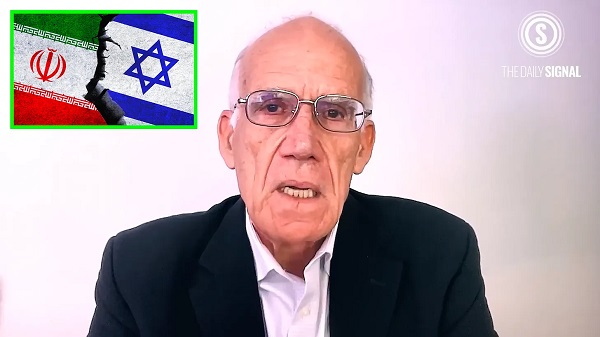
 conflict1 day ago
conflict1 day agoVictor Davis Hanson Makes a Disturbing Prediction About What Happens If Iran Survives
-

 Energy2 days ago
Energy2 days agoWho put the energy illiterate in charge?
-
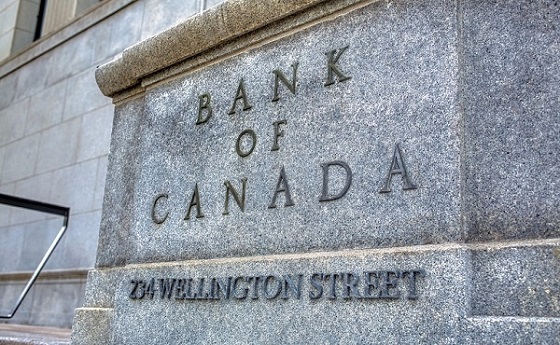
 Banks13 hours ago
Banks13 hours agoTop Canadian bank studies possible use of digital dollar for ‘basic’ online payments
-
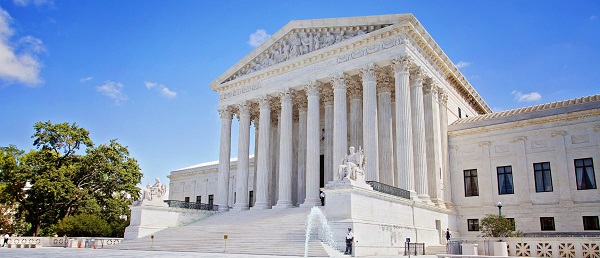
 Automotive1 day ago
Automotive1 day agoSupreme Court Delivers Blow To California EV Mandates
-

 Business1 hour ago
Business1 hour agoOttawa Slams Eby Government Over Chinese Shipyard Deal, Citing Security and Sovereignty Risks
-

 Business2 days ago
Business2 days agoSenator wants to torpedo Canada’s oil and gas industry



